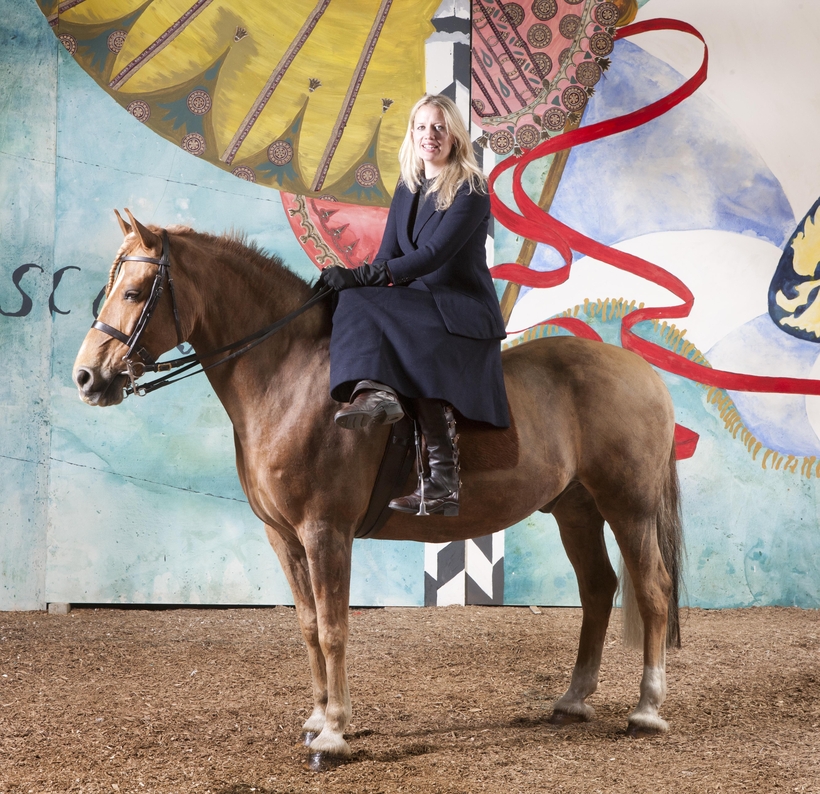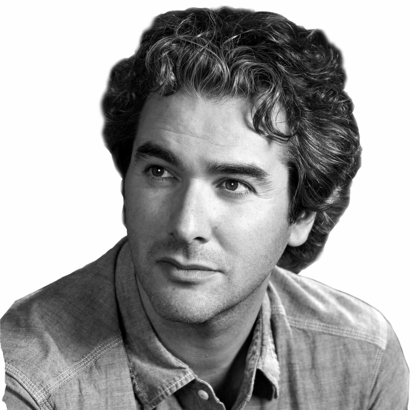Clowns, jugglers, and acrobats traveled from all over to be at Gloucester Cathedral earlier this year to bury one of their own. For Helena Bonham Carter and Vivienne Westwood, the journey was a shorter one. But all were assembled to say goodbye to Nell Gifford, the girl who ran away to join the circus and ended up starting her own.
Gifford grew up in a bohemian family in the Wiltshire countryside. Her father Rick Stroud was a jobbing TV director, her mother Charlotte the creator of a gleefully chaotic haven for her five children, and anyone else who happened to be passing through. There were frequent parties, parades, and ponies cantering through the garden. And then, in 1991, when Gifford was 18 years old, it all came to a sudden halt when Charlotte fell from her horse and suffered a massive and permanent brain injury. The sparkling dynamo at the heart of the family’s life had been stilled; Gifford fled.
A distant relative who owned a circus in upstate New York invited her to join him. She helped to set up the seats and raise the big top. It was tough physical labor but a welcome escape from the problems back home. Gifford returned to study at Oxford University, but the circus had her in its grip. It was upon graduating that her real education would begin.
Gifford became a “josser”—what big top dwellers call an outsider—working in traveling circuses across the United Kingdom, mucking out stalls, washing floors, camping in scrapyards, wading through elephant urine. Not especially glamorous work, but she loved it.
It was an inauspicious time to have joined an English circus. In Germany, Austria, and Russia, the circus is prized as part of the national culture. But in England the opposite was the case. Town councils banned them from setting up on their land and animal rights protestors smashed their trucks. Sometimes only twenty or thirty people would turn up for a show involving horses, elephants, and a cast of dozens. England was the bottom of the barrel of the circus world. Gifford set out to change that.
In 1999, when she was just 26, Gifford decided to start her own circus with her new husband, a farmer’s son named Toti Gifford. They had no money, no equipment, and no backing—nothing but a dream of creating the sort of village green circus that had long ago roamed the English countryside. Penniless, they built their wagons from scratch, scoured the local newspapers for second-hand wedding tents, and nail by nail, stitch by stitch, brought the circus to life. While Toti worked as a landscaper, Gifford wrote a memoir of her circus life called Josser: The Secret Life of a Circus Girl. It was well received and led Giffords Circus to its first booking at the Hay-on-Wye literary festival. Against all odds, it was a hit.
England was the bottom of the barrel of the circus world. Gifford set out to change that.
The early years were scattershot. The audience sat on hay bales, and the acts were sometimes more enthusiastic than experienced, but Gifford’s grit kept the show going through breakdowns, fights, runaways, thefts, and her eventual divorce from Toti. As the circus grew, Nell began traveling further afield to find her acts, hand-picking Parisian musicians, Ossetian horsemen, Ethiopian jugglers, Cuban tumblers, Hungarian blue-robed csikós, to go along with the horses, dogs and chickens plucked from her own farm.
While many circuses kept their acts separate from each other, Gifford wanted her circus to be an ensemble, with acrobats and animal trainers, ticket girls and contortionists, all working together. Each member performed, helped rig up the show, and supported everyone else. It was as if Gifford wanted to create a new family to replace the shattered one of old. But in this family the falls would always be intentional, and life-shattering injury would be defied on a nightly basis. Her circus was not just entertainment; it was the recreation of the world as she wanted it to be.
Old European circus families who came to see the show would be in tears by its end because it reminded them of bygone times. It was a riposte to the brilliant but bloodless Cirque du Soleil extravaganzas one could see in arenas across the world. In Gifford’s circus the audience sat so close that the tail of a horse could brush your face as it cantered by. The audience didn’t just watch the act, they became a part of it, with each show ending with an invitation to dance with the performers in the sawdust-strewn ring.
The arrival of the burgundy-colored Giffords trucks and caravans has now become a summer tradition as they wend their way through the market towns of south-west England, drawing families and the occasional celebrity, including Phoebe Waller-Bridge, Hugh Grant, and Stella McCartney. Even when Nell was diagnosed with breast cancer in 2015, she kept on planning and performing, often in a blond wig to cover the ravages of chemotherapy. Last July she said she’d been given a year to live. That year’s circus, a 60s-themed fantasia called Xanadu, saw her trotting delicate patterns around the ring on a white horse alongside her nine-year-old daughter Red, as the circus band played The Kinks’ bittersweet “Days.” Not long after, a white horse whinnied loudly as if in anguish as it walked down the aisle of Gloucester Cathedral toward Gifford’s coffin, hand-painted in the circus’s colors. Over a thousand people followed it out. It was a procession of familiar faces wearing unfamiliar expressions. There was Tweedy, the circus’s indomitable clown, looking uncharacteristically formal. There was Nancy Trotter-Landry, the circus’s prat-falling leading lady, weeping as she hoisted the coffin onto her shoulder. And there was Pozo, the circus strongman, Nell’s partner of recent years.
Now in its twentieth year, Giffords Circus will continue without its founder, just as she wanted. She leaves a well-oiled machine behind her. The circus will continue to be directed by the acclaimed theater director Cal McCrystal, who has developed shows with Gifford since 2012. It will be bittersweet, but that is what Nell always thought circuses should be. “When I see a show I don’t want to just be amused or moved,” she wrote, “I want to cry.”
George Pendle is an editor-at-large at AIR MAIL

